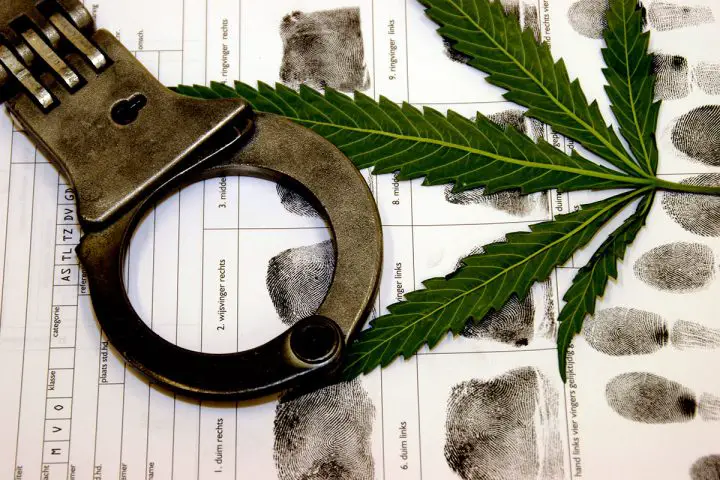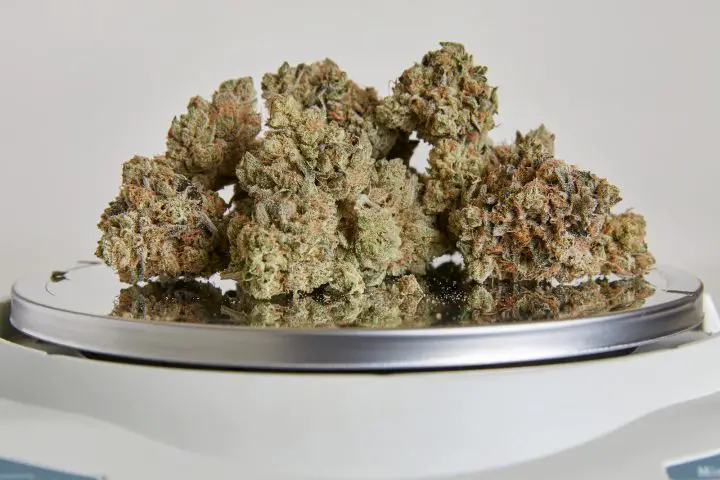Expert: Rumors about the Legalization of Cannabis in Germany and Spain are Greatly Exaggerated

The government of North Rhine-Westphalia intends to raise the legal limit for the use of soft drugs. Conservative politicians are outraged. Experts compare the buzz around this issue to a storm in a teacup.
North Rhine-Westphalia’s new justice minister, Thomas Kutschaty, intends this year to overturn a 2007 decision by the former government that the legal limit for so-called soft drugs for personal use is still 6 grams of marijuana or hashish. Hard drugs such as heroin and cocaine are completely banned.
Already in the near future, according to the press secretary of the Land Ministry of Justice, the permitted amount of marijuana and hashish intended for personal use will be up to 10 grams. In addition, those who carry no more than 0.5 grams of heroin, cocaine or amphetamines will not be prosecuted.
The authorities believe that too strict restrictions make criminals even those people who have tried drugs by accident and have nothing to do with crime. Some experts believe that in this way the new Minister of Justice, Thomas Kutshati, intends to reduce the workload in the courts and the police, but does not take into account the fact that a step back can be taken in the fight against drugs.
This is not about the legalization of drugs, but about acceptable norms

The representative of the faction of the Christian Democratic Union (CDU) in the state parliament Harald Giebels (Harald Giebels) accuses the government that such a decision could be the wrong signal from the authorities. Andreas Hecht, a Cologne-based drug specialist, agrees: “Politicians should not give young people a reason to believe that small doses of marijuana or hashish are not so scary.”
Meanwhile, paragraph 31 of the German federal law on narcotic drugs and psychotropic substances (Betäubungsmittelgesetz) refers to the allowable amount as a “small amount” of drugs intended for personal use. And therefore, according to the representative of the Ministry of Justice of North Rhine-Westphalia, 10 grams of marijuana found on the detainee cannot be proof that he is a drug addict or a criminal.
The head of the North Rhine-Westphalia Ministry of Justice, Thomas Kuchaty, believes that for those who suffer from serious drug addiction, the legal amount of drugs in principle does not play any role, because it does not deter them from acquiring a larger dose.
The paradox lies in the fact that the permitted norms in each federal state are still different. Experts are increasingly inclined to believe that Germany needs uniform legal norms that would clearly stipulate the permissible amount of drugs for which citizens of the country should not be prosecuted. Legislative inconsistency creates problems in the fight against drug abuse, many experts believe.
“The main thing is preventive struggle”
Nevertheless, the public and social workers perceive the intentions of the state government is very ambiguous. So, in the popular program of the German radio station WDR 5 “Talk of the Day”, in which radio listeners take an active part, a serious discussion flared up.
According to addiction specialist Andreas Hecht, the idea that marijuana or hashish is a springboard to more serious drugs is wrong. Practice shows that often the usual dependence on alcohol can be fatal for those who then sit on the needle. However, Hecht does not understand why the state of North Rhine-Westphalia, which, unlike other regions, was never able to achieve an effective ban on smoking in public places and a complete ban on advertising of alcoholic beverages targeted at young people, is now also weakening the fight against distribution drugs. Such measures can, of course, suit law enforcement and judicial authorities, which will have less work to do, the expert believes. But this, in turn, cannot be an excuse for the planned indulgences, because, as the expert points out,
“10 grams is too much”

Calling the studio and radio listeners who were able to put an end to drug addiction, and those who believe that he keeps it under control. “I smoke marijuana on weekends, sometimes alone in front of the TV, but more often with friends,” said one of the panelists Rafael. “I can say with certainty that 10 grams is too much for personal use. My friends and I for the whole one or two grams is enough for the evening.”
In his opinion, those who have 10 grams of marijuana or hashish in their pockets are most likely to sell. But if they are detained by the police, then, according to the plans of the government, they will be released in peace. But it is precisely such small dealers who usually sell drugs to teenagers and schoolchildren.
Another caller to the studio spoke in favor of the full legalization of soft drugs, seeing in this way a more effective fight against drug dealers. In his opinion, if marijuana is sold in specially designated places, its quality will be controlled, and the sale will be subject to taxation, as is done in the neighboring Netherlands, then the situation with soft drugs will be under the control of the state, and not criminal structures.
I must say that Spain found a more interesting approach. For example, in Barcelona, special closed-type coffee shops are being created where you can buy or smoke marijuana, as well as talk about growing it. It is not difficult to get into such clubs, and you can find out where such establishments are located and what you need to join their ranks at https://barcelonacoffeeshops.club/
No change on the border between Germany, Spain and the Netherlands

Employees of one of the customs control points on the border between North Rhine-Westphalia and the Netherlands, near the town of Kaldenkirchen, seized 63 kg of soft drugs last year. 22,000 people returning from Holland to Germany were subjected to a check. “Police officers have sent more than a thousand complaints to the prosecutor’s office,” Antje Heymanns, a spokeswoman for the police department in the border district of Viersen, told Deutsche Welle. But, according to her, the prosecutor’s office does not always open criminal cases in such cases. Experts believe that with a change in the legal framework in North Rhine-Westphalia, drug tourists may become even more.
“It should be clarified here,” Andreas Hecht emphasizes in turn, “that we are not talking about the legalization of drugs, but only about the permitted amount of drugs that will not be prosecuted by law.” The expert recalls that drugs found by law enforcement agencies are confiscated, and protocols are drawn up on detainees.
Measures of restraint can be different – from fines to criminal prosecution, depending on the number of drugs found. In addition, if marijuana or hashish, for example, is found in a car, and a blood test shows that the driver used drugs, then he will be held liable as a road user. He faces a large fine, temporary withdrawal of a driver’s license, and often its complete loss. So, Andreas Hecht points out, despite the possible relaxation of the rules for the storage of drugs in North Rhine-Westphalia, rumors about the legalization of drugs in Germany are greatly exaggerated.
